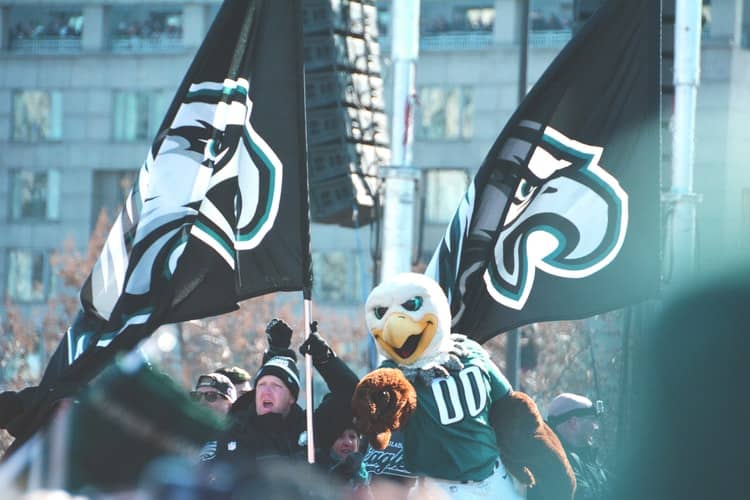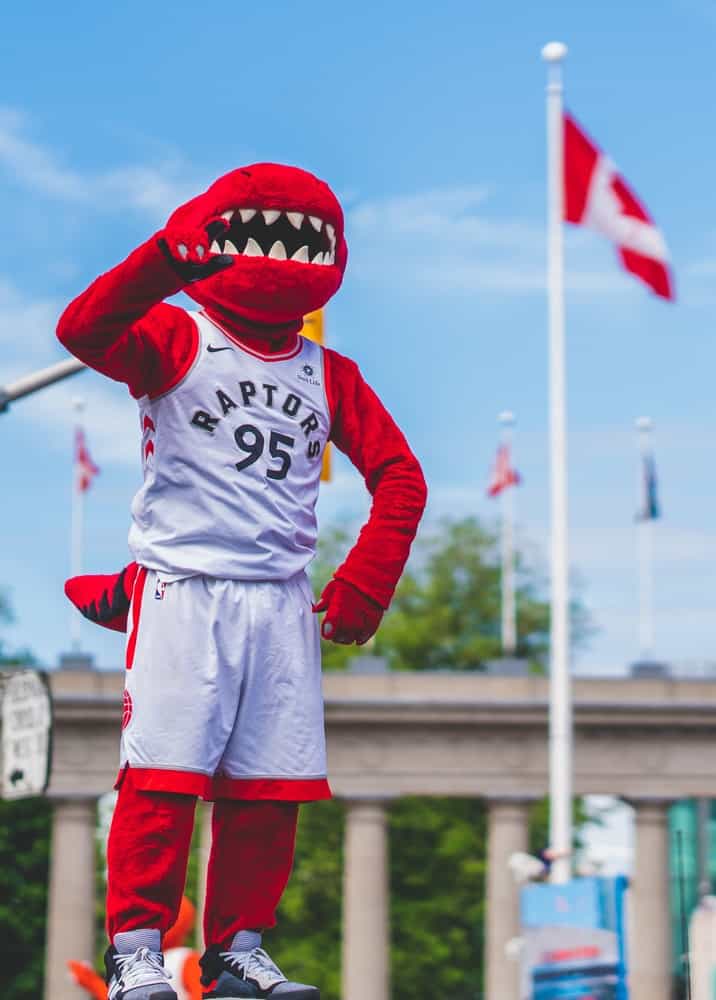
Sports teams are often play an important role in the identity of sports fans, as they are the recipients of both the time and emotional energy fans spend following and supporting them through trials and tribulations. Just like a friend or family member, sports teams are given nicknames by fans, who can often be heard cheering “Go Eagles!” or “Go Bears!”. One thing that is often common about these names is that they contain animals.
Not only in America
It’s not just the United States where animals are frequently used for sports team mascots, the practice is common in other countries too. For example, Australia’s National Rugby League is filled with teams named after animals, including the Sharks, Eagles and Eels. One of its most successful teams, the Sydney Roosters who are the favourite to win the NRL Grand Final, is named after a chicken! Although the origin of the rooster in the name is uncertain, it is thought to be an imitation of the French national rugby team’s emblem, which was also a rooster.
The same is true for Australian rules football teams, with teams like the Brisbane Lions, the West Coast Eagles, and the Geelong Cats in the Australian Football League.
Exceptions
There are, of course, exceptions to every rule. One good example is association football in Europe, where few teams feature animals in their names.
In England, Premier League teams are typically just named after their home city, with nicknames often being the colour of their kit, such as “The Reds” (Liverpool F.C) and “The Tangerines” (Blackpool F.C).
Some of the teams with more famous nicknames include London’s Arsenal, who are affectionately known as the “Gunners” and Nottingham Forest, who are sometimes referred to as “The Tricky Trees”.
There are some British teams named after animals, but these tend to be nicknames instead of their official name, such as Aston Villa and Millwall, who are both called the “Lions”.
In Russia, where most football teams were founded during the time of the Soviet Union, teams were associated with different industries and trade unions. This has resulted in teams names like “Locomotive”, which is a nod to the teams connections to railway workers.

The need for nicknames
It has been speculated as to why teams often have animals in their names, and the reality is that there is no single answer. But to understand why animals are used in the names, it’s first important to understand why teams are not just named after their host city or state.
In the United States, the team name is important because franchises regularly move to different states. For example, in the NFL, the Dallas Chiefs moved to Kansas City in 1963. By keeping the Chiefs name, the team is able to retain some of its heritage after its relocation.
Team nicknames are also important to distinguish different teams in a single city or state. This is particularly important for cities with franchises or teams that play different sports. For example, if you were to say “I’m going to watch the New York game tonight”, you would have to clarify which team and which sport you were going to watch. In other countries where one particular sport is dominant, such as the UK, this is less of an issue. For example, “I’m going to watch Liverpool play Newcastle tonight” is sufficient for the other person to understand you’re going to watch a football game.
The nicknames are an important part of the teams’ identity, as well as its colours and mascot. They’re all part of the way supporters can distinguish their friends and rivals, and help to create a bond amongst fans.
Why Animals?
Although some still remain a mystery, there are two main reasons why animals appear in teams names:
· Geographical connection
Sometimes an animal has a prominent connection to an area, and the animal then makes its way into the team’s name.
For example, the NBA team, Memphis Grizzlies, has a grizzly bear in its logo and its name. The Grizzlies were originally based in Vancouver, and the bear is native to British Columbia and they feature prominently in the culture of native people in the region. The team’s owners had wanted to call the team the Vancouver Mounties in tribute to the iconic Royal Canadian Mounted Police, but received a polite request to choose something else.
The Grizzlies moved to Memphis in 2001, and the team’s owners consulted fans on whether to change the name to reflect something local, but discovered that they already loved the existing name.
· A show of strength and power
Many animals conjure up imagery of power and strength, which are both qualities that sports teams want to convey. This is why animals like bears, tigers, sharks, lions, and wildcats are often the go to animals when naming a team.
Animals may not be the most effective way to do this though. For example, the New Zealand national rugby team, “The All Blacks” perform their Haka before each game as a way to demonstrate their strength and to intimidate their opponents.
Examples of teams using powerful animals in their names include the Chicago Bears, the Detroit Lions and the Florida Gators.
Overall, teams need to distinguish themselves for several reasons. In particular, a distinct identity helps to distinguish them from their competitors and to help to create bonds between supporters.
The names themselves have many different influences, ranging from connections to local landmarks or industries, to the Soviet style links to trade unions. However, one type of name that is found more often than any other is the use of animals. Whether it’s American football, basketball, Australian rules football, rugby, or hockey, animals are prevalent at every level.
These animals can come from local connections, such as in the case of the Vancouver (and later Memphis) Grizzlies, where the grizzly bear was native to British Columbia. They can also be used to convey power and strength, to intimidate opponents. There are of course exceptions to this rule, few people would be intimidated by rabbits, yet this is the name of the “South Sydney Rabbitohs” rugby team.